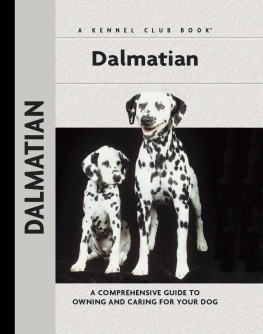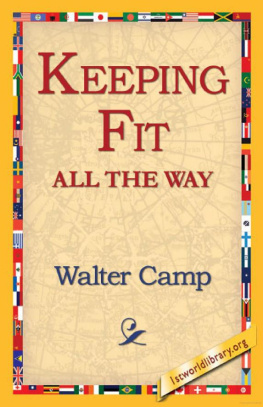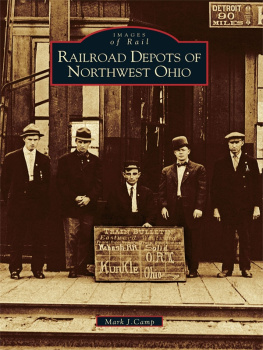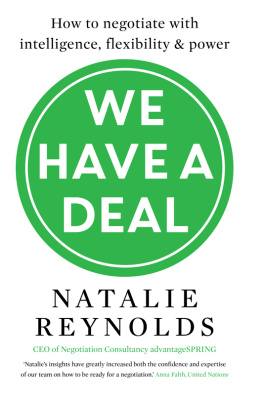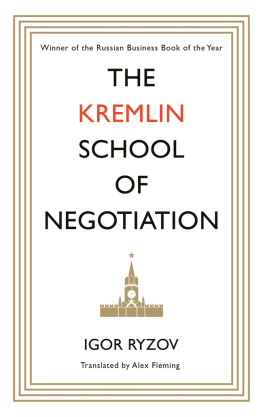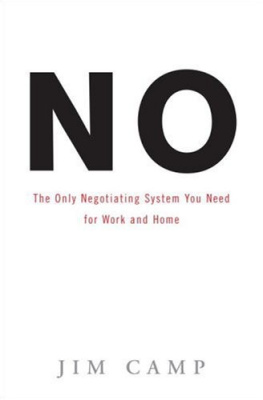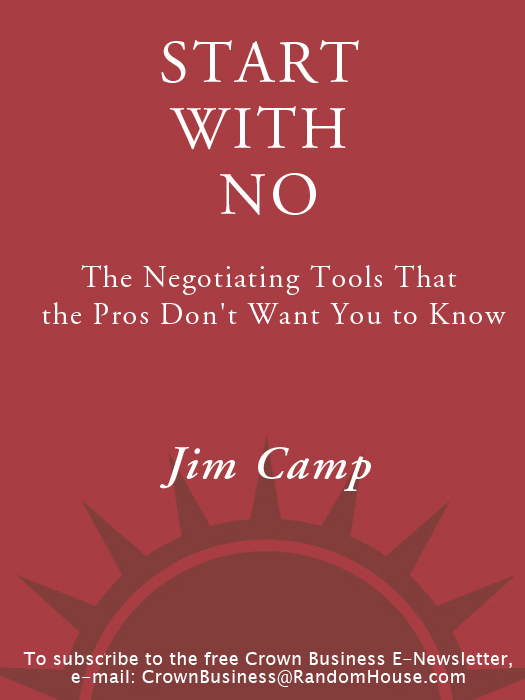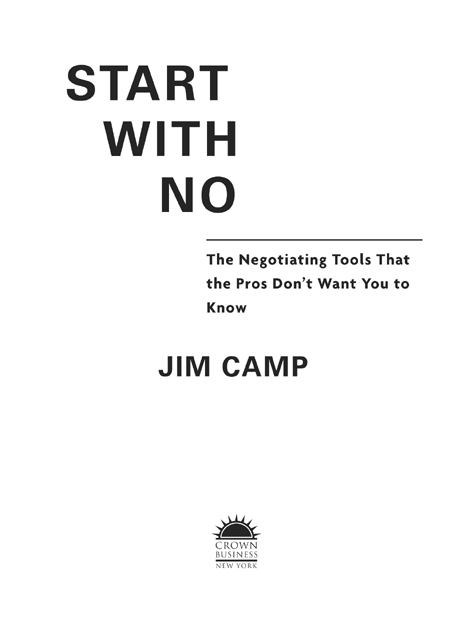Copyright 2002 by James R. Camp
All rights reserved. No part of this book may be reproduced or transmitted in any form or by any means, electronic or mechanical, including photocopying, recording, or by any information storage and retrieval system, without permission in writing from the publisher.
Published by Crown Business, New York, New York.
Member of the Crown Publishing Group, a division of Random House, Inc.
www.randomhouse.com
CROWN BUSINESS is a trademark and the Rising Sun colophon is a registered trademark of Random House, Inc.
Library of Congress Cataloging-in-Publication Data
Camp, Jim.
Start with no : the negotiating tools that the pros dont want you to
know / by Jim Camp.1st ed.
1. Negotiation in business. I. Title.
HD58.6.C36 2002
658.4052dc21 2001047742
eISBN: 978-1-4000-4529-7
v3.1
To my wife, Patty
Contents
Your Greatest Weakness in Negotiation
The Dangers of Neediness
The Columbo Effect
The Secret of Being Not Okay
Start with No
How Decisions Move Negotiations Forward
Success Comes from This Foundation
Develop Your Mission and Purpose
Stop Trying to Control the Outcome
Focus on Your Behavior and Actions Instead
What Do You Say?
Fuels of the Camp System: Questions
How Do You Say It?
More Fuels of the Camp System
Quiet Your Mind, Create a Blank Slate
No Expectations, No Assumptions, No Talking
Know their Pain, Paint Their Pain
Work with Your Adversarys Real Problem
The Real Budget and How to Build It
The Importance of Time, Energy, Money, andEmotion
The Shell Game
Be Sure You Know the Real Decision Makers
Have an Agenda and Work It
Ride the Chaos Inherent in Negotiation
Present Your CaseIf You Insist
Beware the Seductions of PowerPoint
Lifes Greatest Lesson
The Only Assurance of Long-Term Success
Conclusion Dance with the Tiger!
Thirty-three Rules to Remember
Introduction
Win-Win Will Kill Your Deal
H OW OFTEN OVER the past couple of decades have we read or heard the phrase win-win? Thousands, I guess. Enough, I know. The term has become a clich in our culture, the only acceptable paradigm for personal interaction of any sort. In business, its appeal rests on the proposition that no company has the right to plunder a market just because it enjoys a position of strength and dominance. We believe that a shared prosperitya win-win prosperityis the sustainable one.
It all sounds so good, what stick-in-the-mud could possibly disagree that win-win is the model to use in negotiation? Well, I disagree. Based on my nearly twenty years of experience as a negotiation coach, I believe win-win is hopelessly misguided as a basis for good negotiating, in business or in your personal life or anywhere else. This book and my system should be viewed as a rejection of win-win and all its kind. Of the various ideas in my system that I could have chosen as my title, I selected Start with No expressly to emphasize my profound disagreement with win-win, which implicitly urges you to get to yes as quickly as possible, by almost any means necessary. Such negotiating is the worst possible way to get the best possible deal. In fact, it will get you killed.
Maybe you work for one of the many companies around the world that proudly display those shiny win-win trophies presented to the sales team by their largest customers. Thats right, actual trophies, each and every one of which is testimony to a failed negotiation. Testimony to a negotiation conducted without discipline and without a system. Testimony to a negotiation conducted by naive amateurs, to be perfectly blunt. I think its great that eight-year-old girls and boys receive trophies in their baseball and soccer leagues regardless of whether they were the champions that season. I think its astonishing that top executives dont understand that it is precisely the win-win negotiations that are grinding their businesses into the ground. But this is often the case. I know, because many times Ive walked right past the win-win trophy case on my way to meet the executives who want to hire me as a negotiation coach because things have gotten so bad.
But so many deals have been negotiated on the basis of win-win! So many headlines, articles, books! It must work! My answer is simple: The fact that a given deal was negotiated and signed tells me nothing at all. Who said this was a good deal, much less the best one? Just as the fact that the Cleveland Indians scored eight runs tells me something, but not enough, because the Yankees may have scored nine, so I need to know the final score in these so-called win-win deals.
And I do. I know that a certain worldwide delivery company became an industry juggernaut by negotiating deals with hundreds of small vendors across America that the company then abrogated in order to obtain leverage for a better dealbetter for the delivery company, that is. Were those first deals good for the vendors? Just ask them. What about the second deals? Ask the vendors about these, too. I know that certain clothing retailers have made a specialty of squeezing vendors into signing pie-in-the-sky deals with production targets they cannot possibly meet. When they dont come through, the companies enforce the letter of the law, nullify the contracts, and then return in a month or so to renegotiate at the proverbial dime-on-the-dollar, because they now have all the leverage. Were those first or second deals good for the vendors? Just ask them.
When I became a full-time negotiating coach in the 1980s, after years of more informal tutoring, I didnt just say to myself, Jim, theres always a niche for the contrarian in any field, so why dont you go challenge the win-win paradigm? Nor am I a go-for-the-jugular tough guy who enjoys bullying people, as if this were the only alternative to win-win. The business world is certainly full of such individuals, and we will meet some of them in these pages, but Im not one of them. No, I began to challenge win-win because I quickly learned that its all too often win-lose. Make no mistake about it: a simply terrible but supposedly win-win deal is signed every minute in this country. The promise is just manipulation. Its all double-talk.
Think about the situation this way: If a company with a good product or service and with adequate resources goes bankrupt, which happens daily, what is likely to be more responsible for this fatality than poor negotiating with suppliers, customers, employees, someone? But even as the number of win-win losers grows and grows, the unwary are still legion. If I accomplish nothing in this book beyond alerting businesspeople to the dangers of win-win, I will have performed a valuable public service. I feel so strongly on this subject Im now going to devote a couple more pages to it.
Some readersIm among themtend to skim or even skip book introductions. Please dont do so this time. In order to understand my system, you



